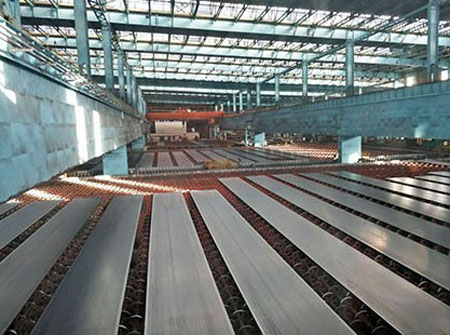News Center

In the shipping industry, a classification society is an organization that sets and enforces technical standards for the design, construction, and maintenance of ships and offshore structures. These societies play a crucial role in ensuring the safety, reliability, and environmental performance of vessels.
Classification societies provide certification and classification services to ship owners, shipbuilders, and operators. They conduct inspections, surveys, and audits throughout the life cycle of a ship, starting from the design and construction phase to its operation and maintenance. They verify compliance with international maritime regulations, industry standards, and their own established rules.
The main responsibilities of a classification society include:
Rule Development: Developing and updating rules and standards to ensure the structural integrity, stability, and safety of ships.
Plan Approval: Reviewing and approving ship designs, plans, and specifications to ensure compliance with relevant rules and regulations.
Construction Survey: Performing inspections and surveys during the shipbuilding process to verify compliance with approved plans and standards.
Periodic Surveys: Conducting regular surveys throughout the ship's operational life to assess its condition, maintenance, and adherence to safety standards.
Certification: Issuing certificates and documents that demonstrate a ship's compliance with applicable rules and regulations.
Emergency Response: Providing assistance and expertise in response to accidents, incidents, or emergencies involving ships.
Examples of well-known classification societies include the American Bureau of Shipping (ABS), Lloyd's Register (LR), Bureau Veritas (BV), DNV GL, and ClassNK. Each classification society may have its own specific rules and guidelines, but they all work towards maintaining safety and quality standards in the maritime industry.
GB T 5312 Carbon and carbon-manganese steel seamless steel tubes and pipes are mainly for ship use, also known as shipbuilding steel pipes. Under GB T 5312, there are mainly 5 steel grades: grade 320, 360, 410, 460 and 490. Each grade covers three levels: I, II, III.
Angle steel, commonly known as angle iron, is a long strip of steel whose sides are perpendicular to each other. There are equal angle steels and unequal angle steels. The two sides of equal angle steel are equal in width. The unequal angle steel is also known as L shape profile steel.
Flat bar steel can be produced according to the user's needs, with fixed thickness, width and length. It can reduce the cutting process for users, reduce the consumption of labor and materials, and also reduce the processing loss of raw materials.
Bulb flat steel for shipbuilding
The bulb flat steel is a kind of medium section material which is mainly used in the field of shipbuilding and bridge building, and the shipbuilding bulb flat steel is an auxiliary medium section material for shipbuilding.
The steel for shipbuilding and oil platform---FH40, is the high tensile strength steel.The shipbuilding steel FH40 is the Hull structural steel.We can provide FH40 shipbuilding steel plate price.
The steel for shipbuilding and oil platform---EH40, is the high tensile strength steel.The shipbuilding steel EH40 is the Hull structural steel.We can provide EH40 shipbuilding steel plate price.
If you are interested in our company or products, welcome to visit our company or local offices; you can also get contact with us through online consulting, demand table submission, e-mails and telephones. Our staff shall wholeheartedly provide product information, application knowledge and good service for you.





 BBN SHIP STEEL FACTORY
BBN SHIP STEEL FACTORY